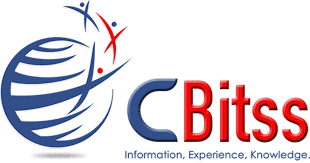Must-Have Skills for a Successful Career in C Programming
Embarking on a career in C programming can be a rewarding journey filled with exciting challenges and opportunities. Whether you’re a budding programmer or an experienced developer, mastering certain skills is crucial for success in this versatile language. In this article, we’ll delve into the must-have skills for a successful career in C programming that can help you stand out in the tech landscape.
Before we jump into those essential skills, it’s beneficial to understand the foundational concepts like storage classes in C.
Understanding the Basics of C Programming
What is C Programming?
C programming is a high-level, procedural programming language that was developed in the early 1970s. It serves as the backbone for many other programming languages and is widely used in systems programming, embedded systems, and application development.
Why C is Important?
C is known for its efficiency and control over system resources. Learning C not only equips you with essential programming skills but also helps you grasp the underlying principles of how computers work. This understanding is invaluable in various tech roles, making C programming a must-know for aspiring software developers.
Key Skills for C Programming Success
1. Proficiency in Syntax and Semantics
A solid grasp of C syntax and semantics is non-negotiable. Understanding the basic rules of how the language operates allows you to write efficient code and debug issues effectively. Here are a few key points to focus on:
- Data Types and Variables: Knowing how to define and use data types such as int, float, char, and double is fundamental.
- Operators and Expressions: Familiarize yourself with arithmetic, relational, and logical operators.
- Control Structures: Mastery of loops (for, while, do-while) and conditional statements (if, switch) is essential for flow control.
2. Memory Management
Understanding memory management is crucial in C programming. C gives you direct control over memory allocation and deallocation.
- Dynamic Memory Allocation: Learn to use functions like malloc(), calloc(), realloc(), and free() for managing memory effectively.
- Pointers: Grasp the concept of pointers, as they are integral to dynamic memory management, function arguments, and data structures.
3. Data Structures and Algorithms
Having a strong foundation in data structures and algorithms is essential for optimizing your code and improving performance. Here’s what to focus on:
- Common Data Structures: Become familiar with arrays, linked lists, stacks, queues, trees, and hash tables.
- Algorithms: Understand basic algorithms for sorting, searching, and recursion.
4. Debugging and Testing Skills
Being able to identify and fix errors in your code is a critical skill. Here are some debugging strategies:
- Compiler Warnings and Errors: Learn to interpret and address compiler messages.
- Debugging Tools: Familiarize yourself with tools like GDB (GNU Debugger) to trace and fix bugs.
- Unit Testing: Implement unit tests to ensure that individual components of your code work as intended.
5. Understanding Storage Classes
As mentioned earlier, knowledge of storage classes in C is vital. They define the scope, lifetime, and visibility of variables. Here are the main types:
- Automatic: Local to the function, exists only during execution.
- Static: Retains value between function calls.
- Register: Suggests to store a variable in a CPU register for quick access.
- External: Used to access variables defined in other files.
6. Familiarity with Standard Libraries
C comes with a robust set of standard libraries that can simplify many programming tasks. Here’s what you should know:
- Input/Output Functions: Functions like printf() and scanf() are fundamental for interacting with users.
- String Manipulation: Get comfortable with string handling functions found in <string.h>.
- Mathematics: The <math.h> library provides various mathematical functions that can enhance your programs.
7. Concurrency and Multithreading
In today’s world of high-performance computing, understanding concurrency and multithreading can give you a significant edge. While C does not provide built-in support for threads, you can utilize libraries like pthreads for multithreading applications.
- Creating Threads: Learn how to create and manage threads.
- Synchronization: Understand mechanisms such as mutexes and semaphores to prevent race conditions.
8. Version Control Systems
Familiarity with version control systems, particularly Git, is indispensable for modern software development. This knowledge will help you:
- Track Changes: Manage and track changes in your codebase.
- Collaborate: Work effectively in teams by merging code and resolving conflicts.
9. Understanding Operating Systems
A solid understanding of operating systems enhances your ability to write efficient C code. Here are a few topics to focus on:
- Processes and Threads: Know how the operating system manages processes and threads.
- Memory Management: Understand how operating systems handle memory allocation.
- File Systems: Familiarize yourself with how file I/O works at a lower level.
10. Continuous Learning and Adaptability
Finally, the tech landscape is ever-evolving, and being adaptable is key to a successful career in C programming. Engage with the community, participate in forums, and stay updated on the latest developments and best practices.
Conclusion
To sum up, a successful career in C programming hinges on mastering essential skills such as syntax, memory management, debugging, and understanding data structures. Additionally, being proficient in storage classes and keeping up with the latest industry trends can significantly enhance your career prospects. As you continue on your programming journey, remember that the learning process never truly ends.
FAQ:
- What is the best way to start learning C programming?
Start with online courses, textbooks, or tutorials that provide a solid foundation. Practice coding regularly to reinforce your learning. - How long does it take to become proficient in C?
It varies by individual, but with consistent practice, many people can become proficient within a few months to a year. - Are there any recommended resources for learning C programming?
Yes! Consider books like “The C Programming Language” by Kernighan and Ritchie, as well as online platforms like Codecademy and Coursera. - Can I use C for web development?
While C is not commonly used for web development, it can be used for backend services and systems programming. - What career paths can I pursue with C programming skills?
C programming skills can lead to roles in systems programming, embedded systems, game development, and more.
By focusing on these must-have skills for a successful career in C programming, you’ll be well on your way to becoming a proficient programmer ready to tackle complex challenges. Happy coding!






